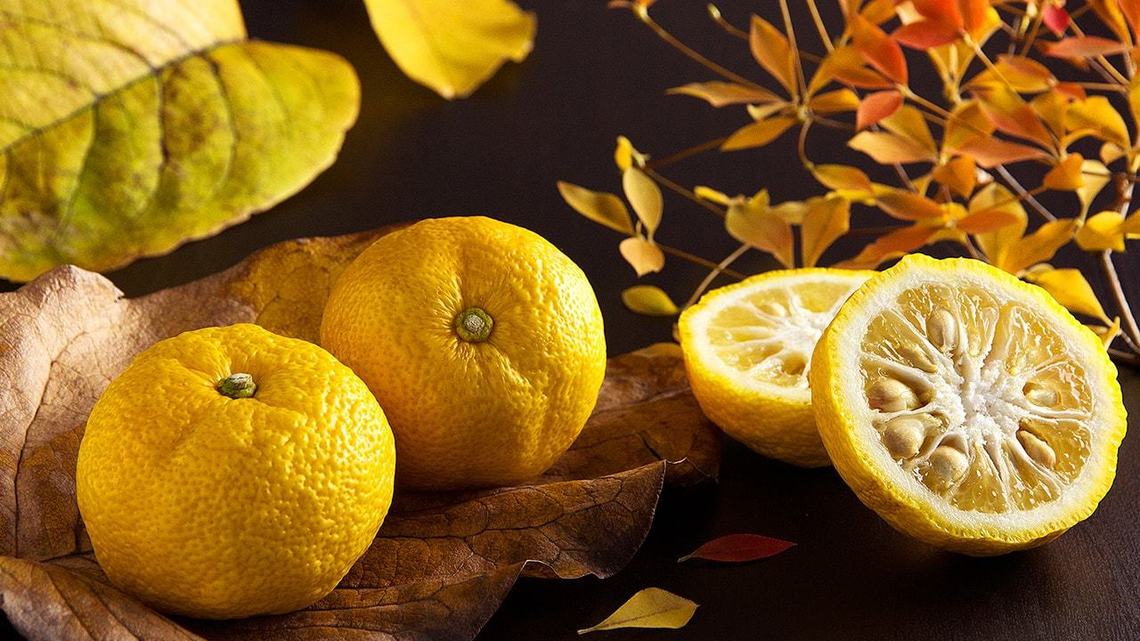
You might want to look again: that’s not a lemon, it’s a yuzu! First grown in central China, this citrus fruit is bright yellow, round and slightly smaller than an orange. It has a rough skin and big seeds. The taste is between that of a grapefruit and a mandarin orange; tart but very aromatic. While the fruit itself is almost never eaten on its own, the zest and juice are used in countless ways in food, drinks and even cosmetics!
In Japan, you can’t have winter without yuzu. But if people don’t eat the actual fruit, how do they consume it? Here are some examples. While we recommend you try at least a few of these yourself, they also make for great gifts.
Yuzu in Food and Drinks
You can find all of these products in almost every supermarket and grocery store in Japan.
Yuzu Ponzu | ゆずポン酢
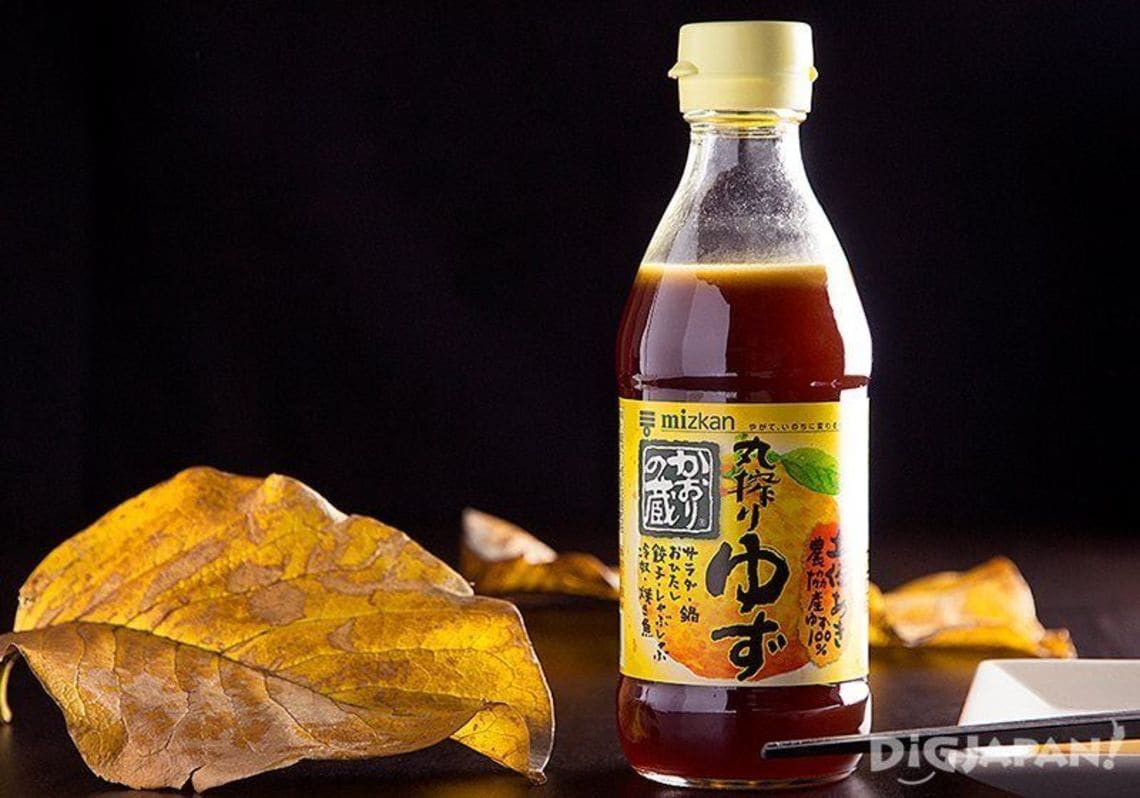
Ponzu is a kind of citrus-based sauce that is very popular in Japan. Yuzu makes up the majority of this sauce, which provides its characteristic tart and refreshing taste. Ponzu is most recommended with tataki (fish or meat grilled on the outside and raw on the inside), nabe (hot pot) and sashimi.
Yuzu Powder | ゆず粉末

This is dried and powdered yuzu skin. It adds a great citrus aroma to just about anything. It’s even used in certain sweets! You can sprinkle it on your tofu, ramen noodles, or tempura. Secret tip: try mixing some into your regular salt!
Yuzukosho | ゆずこしょう
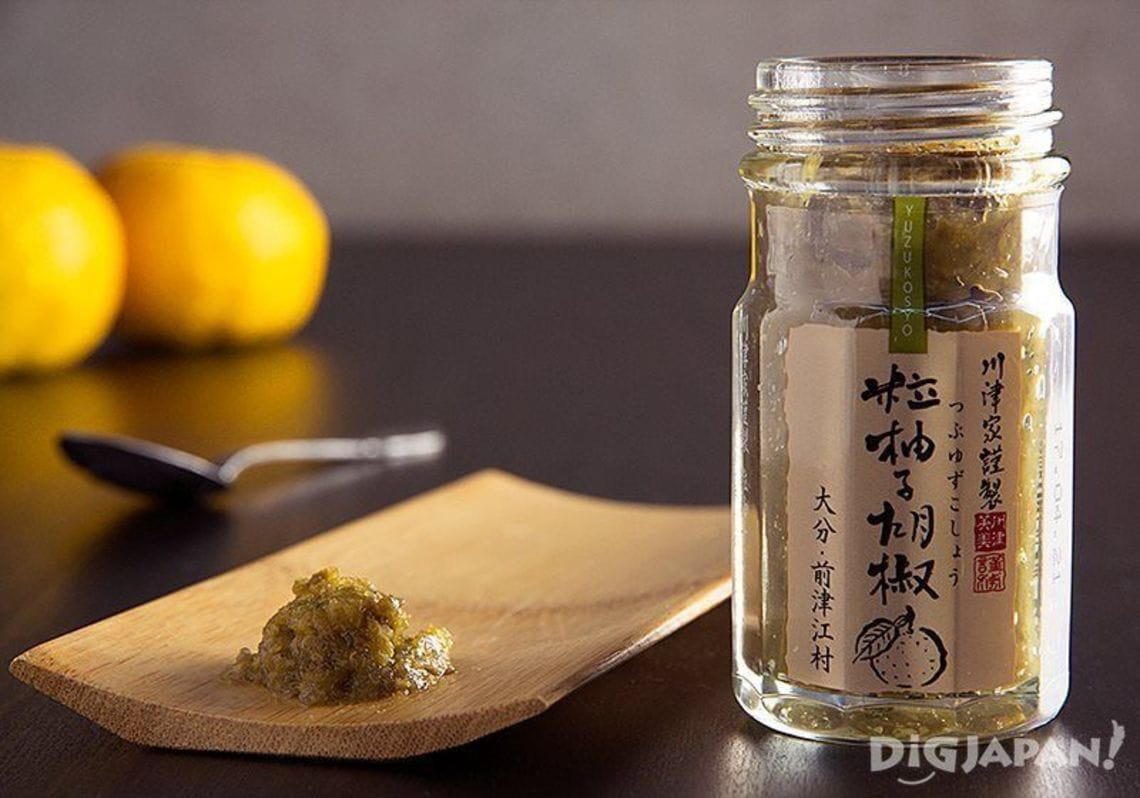
Yuzukosho is a paste made from fermented chili peppers, yuzu peel, and salt. Like ponzu and yuzu powder, this magic mixture seems to make every food it touches more delicious. It goes equally well with meat, fish and vegetables. It is also often served with oden (a kind of hot pot dish). Want to get creative? Mix it with some olive oil to dress your salad.
Yuzu-cha | ゆず茶

Arguably one of the most loved winter drinks in Japan, yuzu-cha or yuzu tea is something you can’t leave the country without trying. The tea is made by mixing finely sliced yuzu peel with honey or sugar, but it can also be found as a powder. Add just a spoonful to a cup of hot water to get a sweet and soothing aroma with a tangy edge that will warm your body and soul after a cold winter day.
Yuzushu | ゆず酒
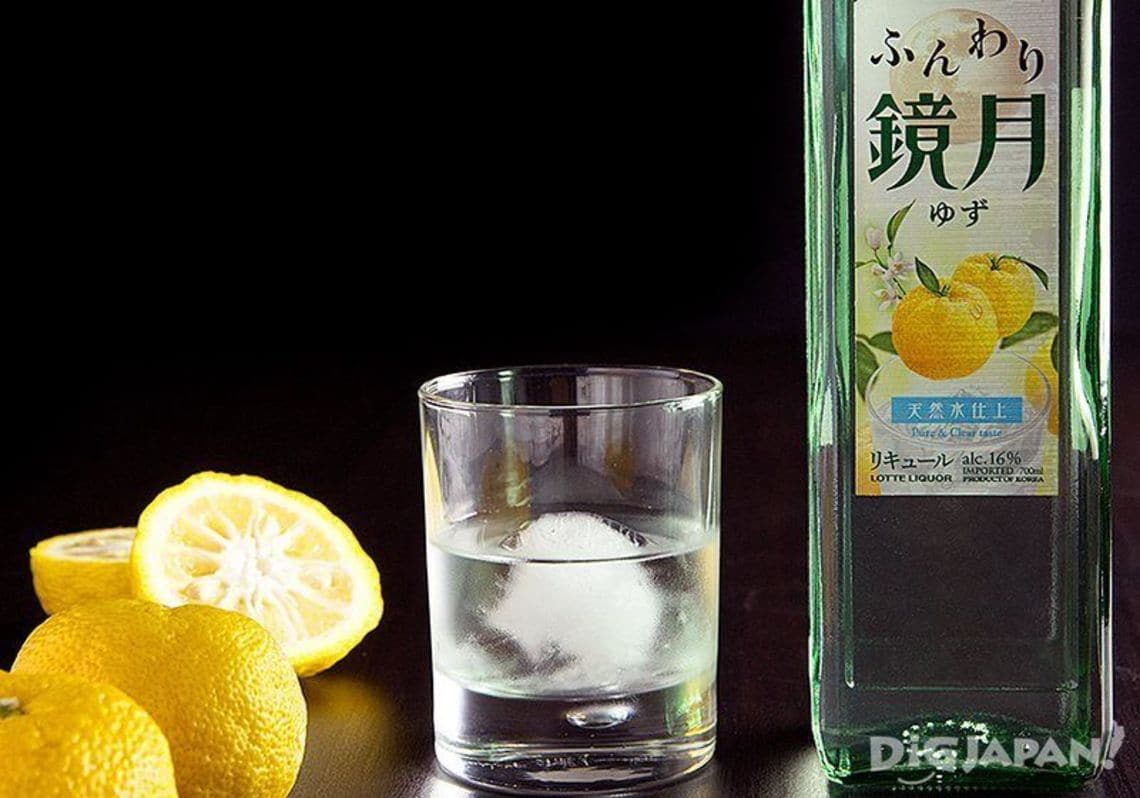
Fruit liqueurs are certainly common in Japan, with the most popular being umeshu (plum liqueur). If you’re not a huge fan of overly sweet drinks but want a break from your regular beer, why not try yuzushu? It can be enjoyed on the rocks or with soda, and you'll never get tired of its zesty flavour.
Yuzu Sour | ゆずサワー
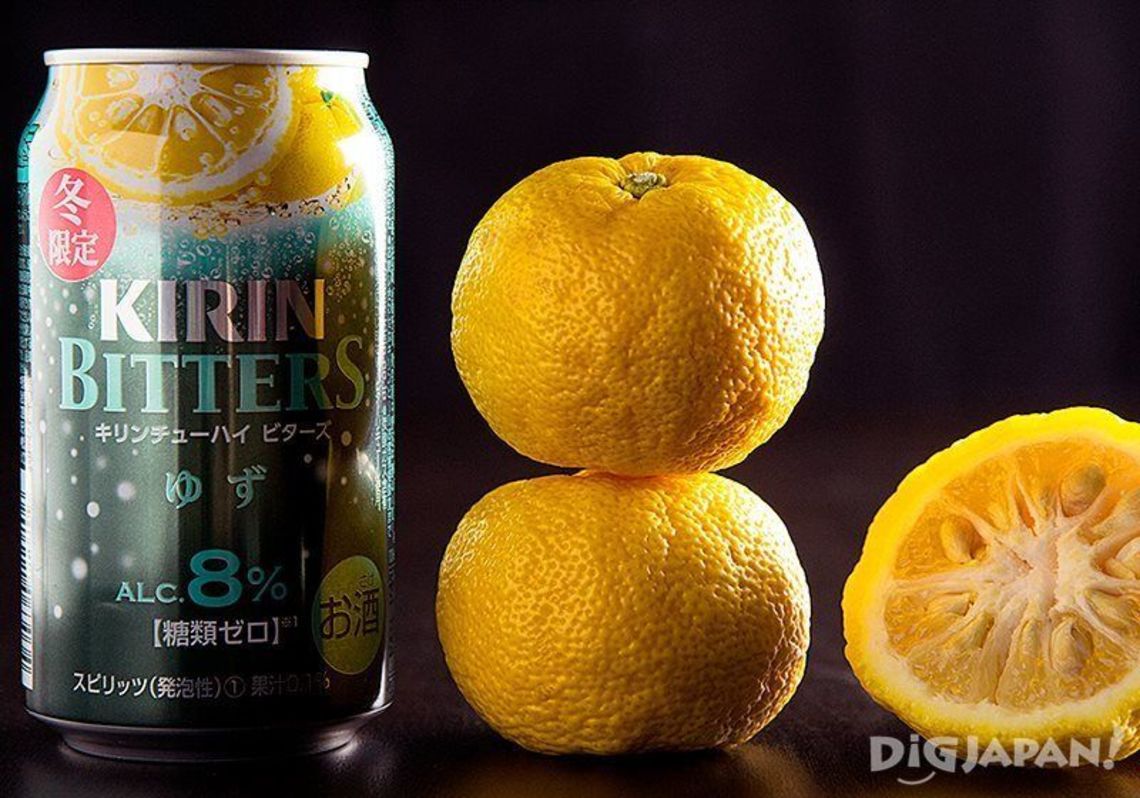
Anyone that has been in Japan will know that one of the alcoholic drinks that comes in the most varieties here is sours. These varieties, of course, include yuzu. Be sure to try the yuzu hachimitsu sour, a yuzu sour with honey in it.
Yuzu Drops | 柚子のど飴
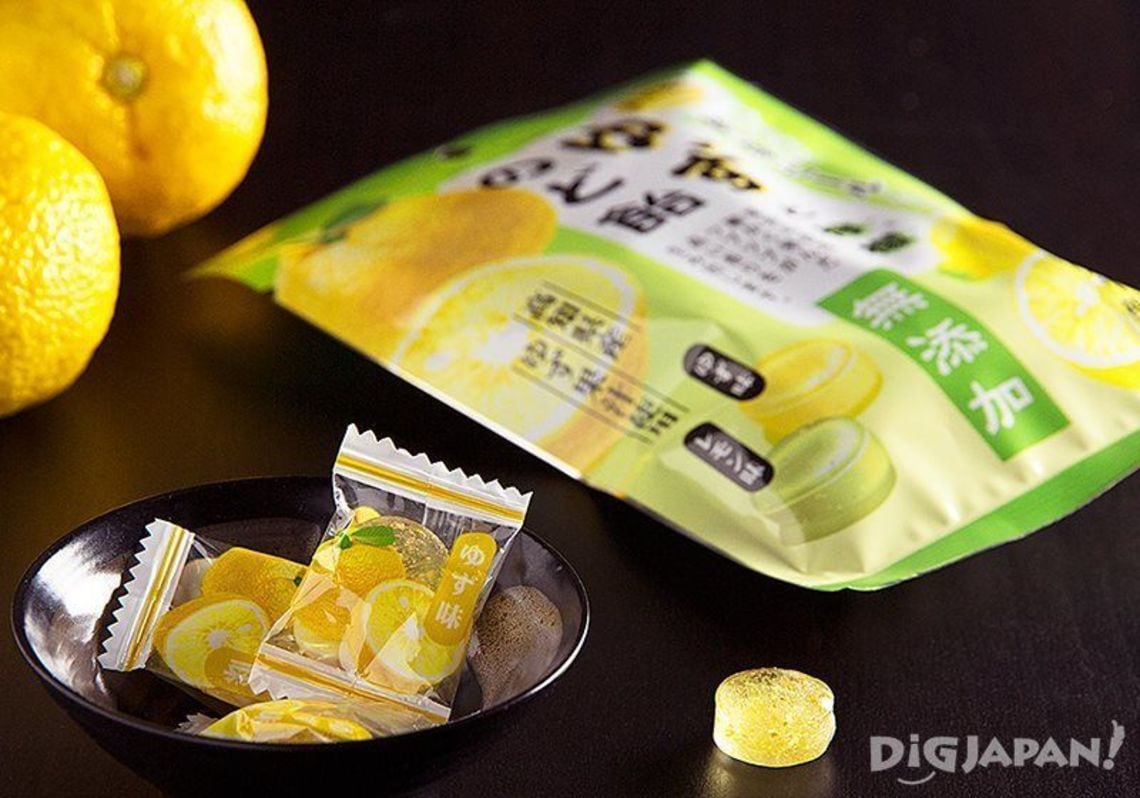
Like lemon drops, yuzu drops are very good for your throat and can relieve minor soreness on the go. They are also very inexpensive and light gifts to bring back home. The bag in the picture comes from a 100 yen store.
Yuzukosho Chips | 柚子こしょうチップス
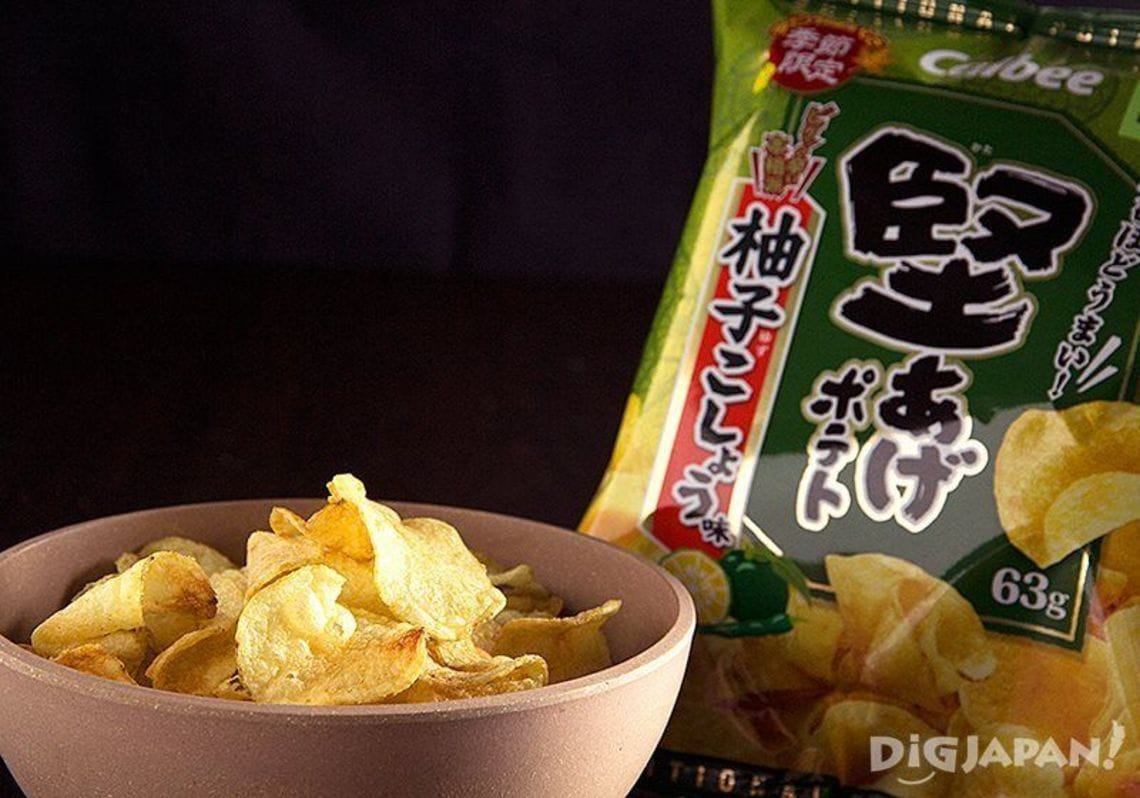
Here is an example of the countless yuzu flavoured snacks that you can find in Japan. These chips come in a yuzukosho flavour. The acidic taste from the yuzu and the spicy sting of the chili peppers come out slowly and intensify as you go through the whole bag before you even realize it.
Yuzu in Cosmetics
Being an extraordinarily rich source of vitamin C, yuzu has been used for centuries in the treatment and prevention of colds and sore throats. It is also a very good anti-oxidant and anti-inflammatory, and its aroma is said to have relaxing properties. On top of that, eating yuzu is said to be very good for your skin. Cosmetics shops often have a yuzu goods section upfront in winter. Below are some of the most common products that you can find.
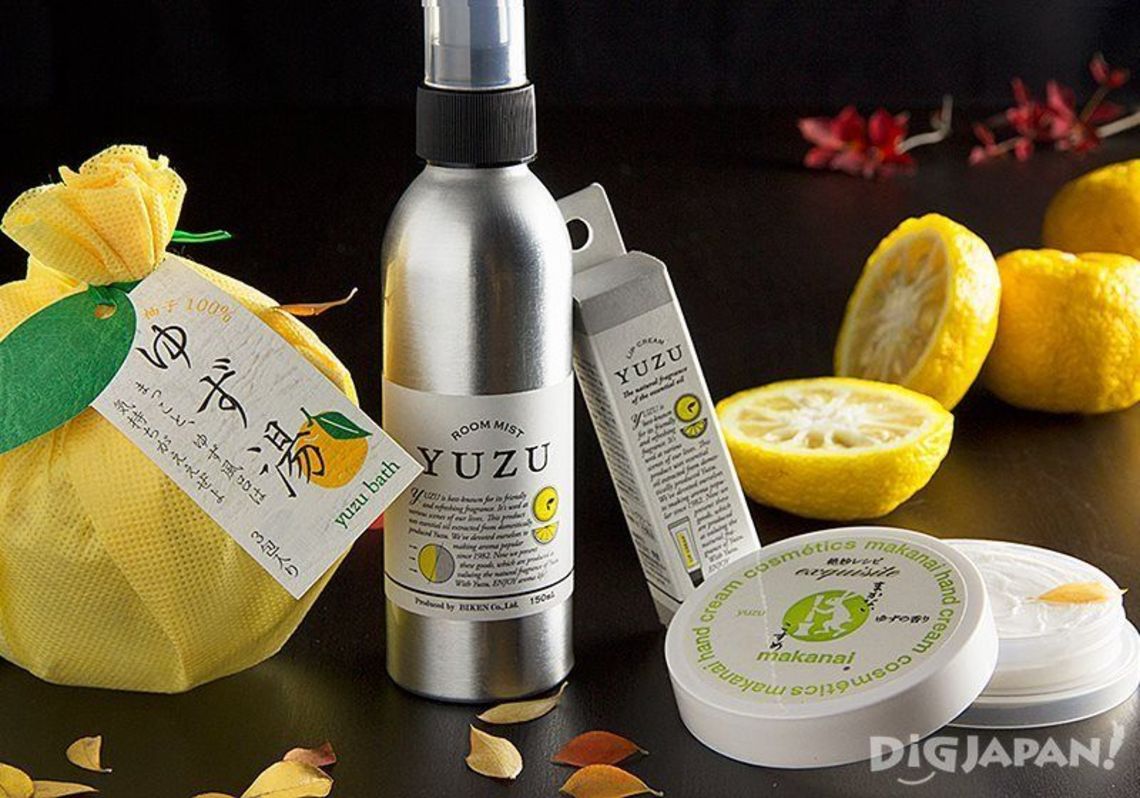
Yuzu Bath Bag
Few countries love taking baths as much as Japan, so it goes without saying that bath salts can be found in all forms and varieties. Relax in the sweet and tangy aroma while the dried yuzu in this bag takes care of your skin.
Yuzu Room Mist
For those who just can't get enough of this fragrance, why not have your house smell like it, too? A few sprays make your room smell fresh and fruity.
Yuzu Lip Balm
If you can't survive the winter without a lip balm always in your pocket to soothe your dry and cracked lips, be sure to give this one a try. It’s very delicate and beside smelling nice, it moistens your lips without leaving them sticky.
Yuzu Hand Cream
This hand cream will leave your hands soft and with a lasting, refreshing aroma. It will feel like you've been picking fresh yuzu.
Yuzuyu | ゆず湯
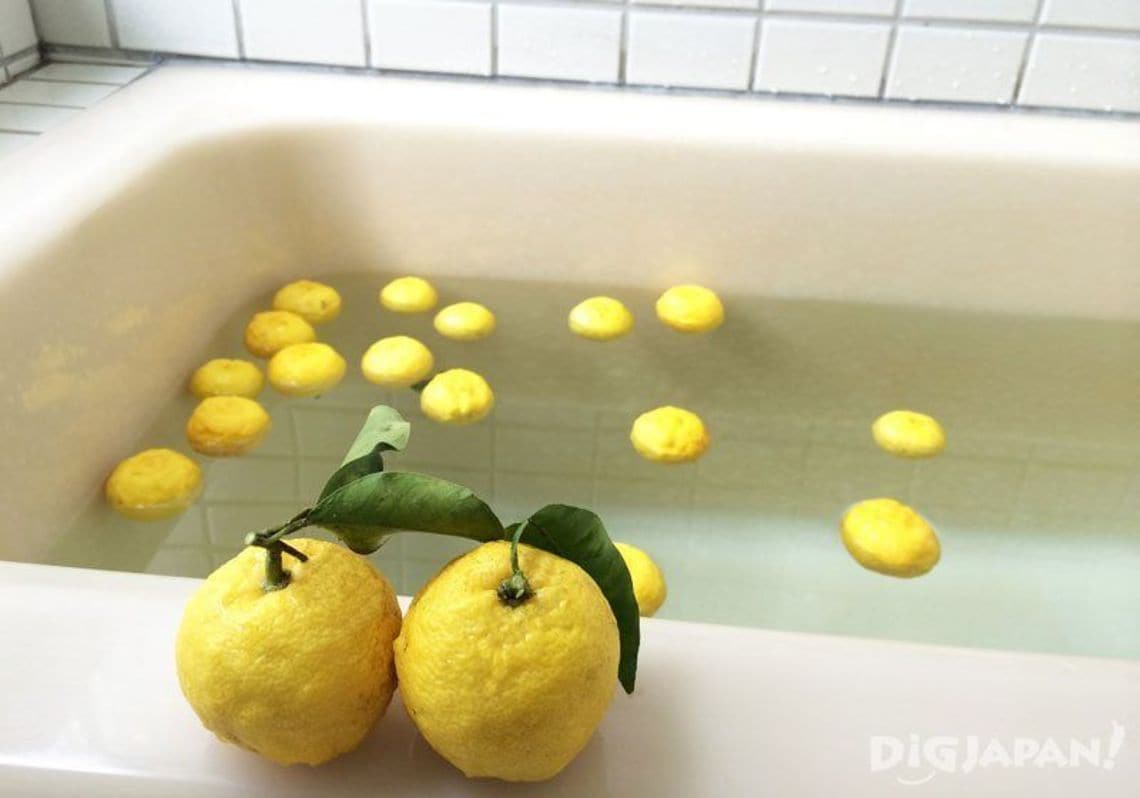
The Japanese truly love this fruit and use it in about every aspect of their lives. Would you believe they even have a special yuzu day? During toji (the winter solstice) which falls around December 21st, many public baths and onsen (hot springs) all over the country offer hot baths filled with whole yuzu fruits. People even add these fruits to their baths at home! Bathing in yuzu on toji is said to prevent colds and frostbite, help circulation, and nourish the skin.
This is also a ritual to bring good fortune for the year to come. Traditionally, when bathing with yuzu on winter solstice you should say 一陽来復 (ichiyou-raifuku), which roughly means turn of fortune or return of spring. The winter solstice is the shortest day of the year. From this day on, however, the days will start getting longer and the sun stronger. In the same way, all the bad luck that one had until this day can be swept away and good fortune may come back together with the spring. Yuzu ripens in winter after months of hard work and can withstand freezing temperatures. Because it this, it symbolizes the strength and resilience that it takes to overcome the long cold and bad luck.
Let us know in the comments what yuzu products you find on your trip to Japan and which one is your favourite!
(Written by Laura Loss/DiGJAPAN!)
About the author:
Laura is an Italian living and working in Tokyo. She loves exploring hidden and unknown places, taking pictures and listening to Punk Rock music. When she’s not busy doing the above, she might enjoy a craft beer or play the sanshin (an Okinawan instrument similar to a shamisen).
Related articles from DiGJAPAN!



